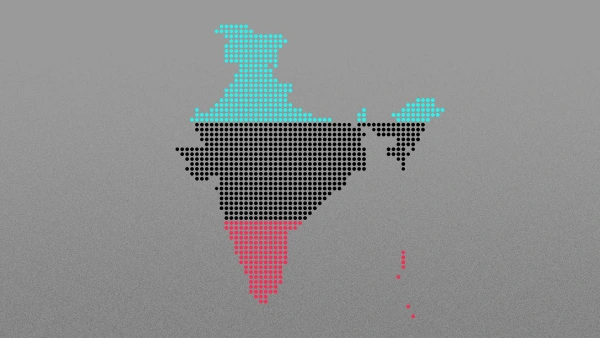4 Predictions for What Happens If TikTok Gets Banned in the U.S., According to a Harvard Business School Professor

When India banned TikTok in June 2020, millions of people in the massive and population-dense South Asian nation were thoroughly enamored of the Chinese-owned social media company. Even then, Gen-Zers and Millennials danced to new KPop songs while entrepreneurs showed their followers behind-the-scenes looks at how their flagship products were made. But after a deadly geopolitical crisis with China at the disputed Himalayan border, India banned TikTok and more than 50 other Chinese-owned apps.
What’s happened since can be instructive for Americans now facing down a ban of what’s become, for many, a vital marketing tool. To help put a finer point on the aftermath for entrepreneurs, Inc. talked to Tarun Khanna, a professor at the Harvard Business School and a director of the university’s Mittal Institute in India. Here are his four predictions:
1. Copycats will come–and go
As soon as TikTok went away, tech companies in the region sprang into action. The problem, says Khanna, is that they were “TikTok copycats,” but they were not TikTok. In the end, he said they weren’t economically viable, because they couldn’t match the virality of TikTok. (Khanna sits on the board of India’s InMobi, which acquired an India-made video platform that also tried to fill TikTok’s void.)
TikTok’s algorithm is known to spark short-form video virality because, Khanna says, it favors posts without regard to geography. This is evidenced by the sheer number of users (200 million) in India prior to the ban. Like many developing countries, he says, India’s smaller cities lack both the physical and digital infrastructure that would help entrepreneurs reach the mainstream market otherwise. TikTok helped India’s small businesses bridge that gap.
“If we go back to 2020, these individual entrepreneurs–content creators, if you will–probably did not have too many other options for how to enter the mainstream economy or to monetize their creativity,” says Khanna. “In that sense, TikTok was really important to many of them.”
2. Virality might suffer
Eventually, only the tech giants like Meta and Alphabet with their Instagram Reels and YouTube Shorts, respectively, remained to fight over the market ByteDance left behind. But even they haven’t filled TikTok’s respective shoes.
While a platform’s algorithm, at its core, dictates which videos get discovered, each company favors different factors. Khanna said Facebook’s algorithm, for example, can expose a video to people within social circles and communities. TikTok’s algorithm, on the other hand, tends to expose that video beyond a user’s circle.
“The whole point of the social development angle of TikTok is you don’t want to be limited by your social network,” Khanna said, noting that it is more egalitarian. In the end, the prevailing algorithm will have economic implications, too, since it will dictate who can grow and how. “The actual algorithm that governs what you’re showing is the thing that’s going to drive whether this is good for economic development for tier-two cities and so on and so forth,” Khanna says.
3. Impact will be limited
Of course, India and the U.S. differ in demonstrable ways. In the U.S., Meta and Google are already powerhouses. India didn’t have ready TikTok replacements when it banned the app, according to Khanna. Moreover, TikTok’s legal battle in the U.S. would be more drawn out as opposed to India, he said, which banned the app almost overnight.
And TikTok is presently huge in the U.S., with 150 million users, including 7 million small businesses. TikTok users in India were only one-seventh of its 1.4 billion population. TikTok is, “more culturally salient,” in the U.S., as Khanna puts it. “I would be surprised if TikTok made much money from India because the price points are so low,” he says. “But in the U.S., they must be making money. It’s a big rich market.”
4. Innovation could suffer
Still, without competitors like TikTok, say, big tech companies may well lose the urgency to innovate. Facebook’s current focus on influencers, for instance, is pretty new, says Eric Dahan, founder of Los Angeles-based marketing firm Mighty Joy. Before TikTok became popular in the U.S., he says Meta tended to view influencers as individual users who just happened to have more followers than the typical account. “Facebook, for a while, had this attitude of we don’t care about influencers. We just look at them like users. It’s all about our own ad platform,” he tells Inc. Dahan says it was the competitive pressure from TikTok that changed Facebook’s focus towards influencers. If TikTok leaves, he said other platforms would have “less pressure to innovate as aggressively.”
文章来源:Inc
TKFFF公众号
扫码关注领【TK运营地图】

TKFFF合作,请扫码联系!







 闽公网安备35021102002035号
闽公网安备35021102002035号